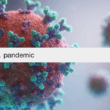
Introduction
Cerebrovascular disease, a critical health concern in the United States and worldwide, encompasses conditions like stroke and transient ischemic attacks (TIAs) that impact the brain’s blood vessels. This comprehensive guide delves into prevention methods, underlines the importance of understanding risk factors, and discusses the role of organizations like the Centers for Disease Control and Prevention (CDC) in combating this disease.
Understanding Cerebrovascular Disease
Defining Cerebrovascular Disease
Cerebrovascular disease refers to disorders affecting blood flow and vessels in the brain. It primarily includes stroke, TIA, and related complications. These conditions can lead to severe health issues, including irreversible brain damage.
Classifying Stroke
- Ischemic Stroke: Occurs when blood flow to the brain is obstructed, often due to blood clots.
- Hemorrhagic Stroke: Caused by the rupture of blood vessels in the brain.
Transient Ischemic Attack (TIA)
Referred to as a “mini-stroke,” a TIA is a temporary disruption in blood flow to the brain, acting as a warning for potential future strokes.
Identifying Risk Factors
Key Risk Factors
- Hypertension
- Diabetes
- Obesity
- Tobacco Use
- High Cholesterol
- Heart Diseases
Recognizing and managing these factors is vital for cerebrovascular disease prevention.
Prevention Tactics
Lifestyle Changes
- Diet: Emphasizing fruits, vegetables, and whole grains.
- Exercise: Engaging in regular physical activity.
- Smoking Cessation: Eliminating tobacco use.
- Alcohol Moderation: Limiting alcohol intake.
Medical Interventions
- Blood Pressure Management: Crucial for reducing stroke risk.
- Diabetes Control: Essential in lowering the likelihood of cerebrovascular complications.
- Cholesterol Management: Using diet and medication to maintain healthy levels.
Symptoms and Early Detection
Recognizing Stroke Symptoms
- Facial Drooping
- Arm Weakness
- Speech Difficulties
- Timeliness: Immediate medical attention is critical.
Treatment Approaches
Immediate Care
- Ischemic Stroke Treatment: Clot-busting drugs or mechanical clot removal.
- Hemorrhagic Stroke Management: Surgical interventions to repair or stabilize ruptured vessels.
Rehabilitation
Involves therapies to regain lost functions and improve quality of life.
Role of the CDC in Disease Control
The CDC offers valuable guidelines and resources for stroke prevention and management, playing a pivotal role in public health and education.
Advanced Prevention Strategies
Monitoring and Control
- Regular Health Check-ups: Essential for early detection and management of risk factors.
- Blood Vessel Health: Understanding the importance of maintaining healthy blood vessels to prevent stroke.
Public Health Initiatives
- Awareness Campaigns: Educating the public about stroke prevention and symptoms.
- Research and Studies: Ongoing research to understand and combat cerebrovascular diseases.
The Importance of Community and Support
Building Support Networks
- Patient Groups: Providing support and resources for those affected by cerebrovascular diseases.
- Caregiver Education: Training and resources for caregivers.
Technological Advancements in Treatment
Innovations in Stroke Care
- Telemedicine: Expanding access to stroke specialists, especially in remote areas.
- Advanced Imaging Techniques: Improving the diagnosis and treatment of cerebrovascular diseases.
Conclusion
Preventing cerebrovascular disease involves a multifaceted approach, including lifestyle changes, medical interventions, and increased awareness. Understanding risk factors, recognizing symptoms, and following CDC guidelines are key to reducing stroke incidence and improving health outcomes. Regular consultations with healthcare professionals and active management of health conditions are essential in controlling and preventing cerebrovascular diseases.



